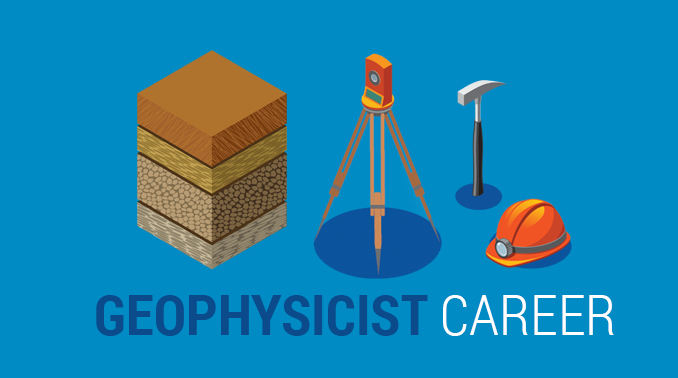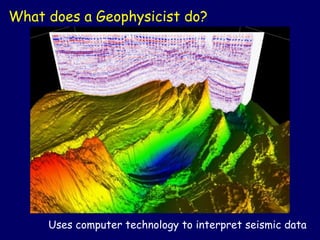All Categories
Featured
Table of Contents
Geophysical Surveys: Definition & Methods in Calista Oz 2022
This work is significantly contracted out, so consultancies provide another source of employment. Consultancy companies differ in size, from really small business to large multinationals. Some consultancies are rather specialised in utilizing specific geophysical methods or operating in particular locations, while others use a more varied range of services to their customers.
The extraction of gas from garbage dump sites is another location of employment and this might grow in the future. Exploration companies may carry out work for building firms, water companies, mining business and ecological companies, so geophysicists may be employed in any of these settings. Other employers consist of: geological surveysgovernment bodies and agenciesuniversities and research institutes.


Jobs may be noted in the oil and gas sector press. Recruitment is affected by oil rate fluctuations and the level of competitors for positions varies depending upon this. Professions Days, which cover the complete variety of geoscience careers and are usually gone to by a variety of essential industry employers, are run by The Geological Society.
Geophysicist Job Description, Career As A Geophysicist ... in East Cannington Australia 2023
Some of the big oil and gas business use a complete two-year structured training programme across the breadth of geophysics, consisting of the chance to experience work in various teams prior to specialising in one location. Your training might consist of work on: existing wellsmagnetic and gravitational possible field data analysisresearchrock analysis. It's more normal for your preliminary training to be provided on the job.

There may be a probationary period throughout which you work together with an experienced associate. Competency-based appraisals occur regularly in most companies. In smaller sized firms, and for academic posts, there is not likely to be any official training - you'll be anticipated to begin work straightaway and get abilities as you go along.
If you work for a smaller sized company, you might find that you need to take responsibility for arranging and funding your own development and training. If you have a geology degree, subscription of The Geological Society can be helpful for networking and for keeping up to date with the market.
How To Become A Geophysicist in Mosman Park Oz 2023
You might also find it helpful to sign up with the PESGB (The Petroleum Exploration Society of Great Britain, which has a geophysics special interest group. After a probationary duration, and once you've gotten some experience, you could advance to senior geophysicist, then group leader and then into a senior function in management.
The ease of motion in between functions depends upon the business structure. Study at Masters or Ph, D level in a subject associated to geophysics or geosciences might assist with your profession development and progression. The work market within the oil and gas industry is very dependent on price and this might impact your opportunities for profession development.
For knowledgeable geophysicists, freelance consultancy offers a good route for career advancement. As a geophysicist, you're most likely to have several tasks throughout your working life.
Geophysical Survey - Mining Fundamentals in Cooloongu Western Australia 2023
From geophysics, it's possible to focus on seismology (finishing additional training to become a seismic interpreter) or to move into related locations such as engineering geology or hazard prediction.
Deciding what to study in college is a tough option. Even if you know that your field of interest depends on science, what program of research study is ideal for you? If you make the decision to major in physical and life sciences and pursue a profession as a geophysicist, you're preparing for an interesting and rewarding occupation.
The first action to attaining your objective of ending up being a geophysicist is making a degree. Even for entry-level positions in the field of geoscience, you'll need a bachelor's degree (a geophysicist college degree) from a certified college or university. Geophysicists should be able to: evaluate rocks, photos, and other pieces of data conduct research both in the field and in laboratories create maps and charts of their findings compose reports To achieve all this, trainees need a specialized education for geophysicist careers.
As mentioned above, you'll need a bachelor's degree in geoscience or a related discipline, such as a physical science or a life sciences, to land an entry-level job. Students can also prepare by majoring in subjects like: Biology Chemistry Computer system science Engineering Mathematics Physics The above geophysicist majors use a more generalized approach to a single scientific discipline, but many programs need trainees to take one or more geology course.
Latest Posts
How To Become A Geophysicist in Dalkeith WA 2022
What Is The Best Degree Path For Becoming A Geophysicist? in Floreat WA 2023
Marine Geology And Geophysics in Rivervale Western Australia 2022